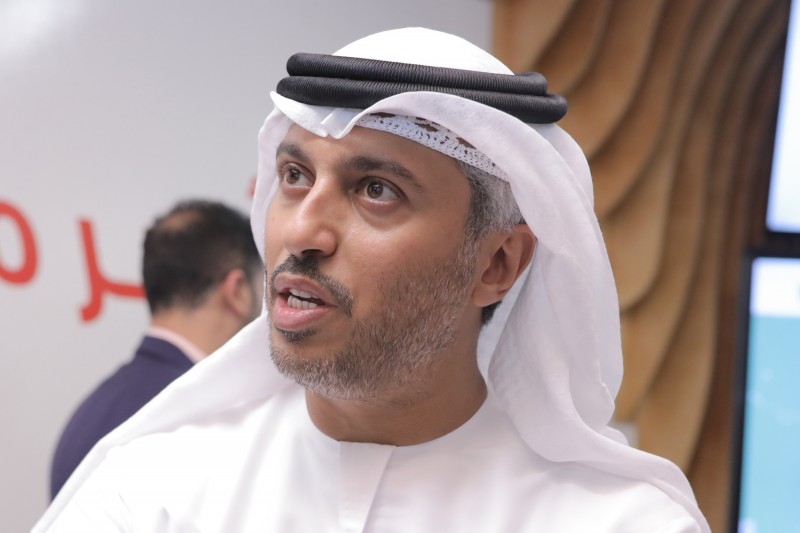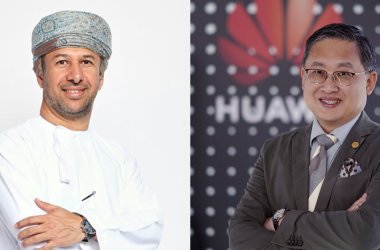
Women perform better than men academically, Dr Ahmad bin Abdullah Humaid Belhoul Al Falasi, the minister for higher education and advanced skills, says in an exclusive interview with tahawultech.com
“Historically, STEM has been perceived as a male-dominated field, but I can tell you from the ministry, we are seeing more women that are interested in STEM,” he says. Al Falasi even goes one further, admitting that archaic perceptions are wide of the mark in 2018. “We talk about the gender gap globally, but in the UAE, women perform better academically, and right now, are far more employable than men because they are more focused,” he says. “We are seeing female participation increase in the workforce and in STEM studies.”
The World Bank estimates that the UAE’s female labour participation rate for 2017 was 41%, compared to the global average of 49%, and Al Falasi sees a huge opportunity in that regard. The need to not only encourage women to join the workforce, but to pursue subjects that will be in demand, is crucial.
According to the 2017 Global Knowledge Index, the UAE’s path to a knowledge-based economy is clear. The country’s higher education system is ranked as the 27th best in the world, higher education students are the 8th most competent, while the country also ranks 24th for technical vocation education and training.
The joint research project, led developed by the United Nations Development Programme and the Mohammed bin Rashid Al Maktoum Knowledge Foundation, draws on research from 131 countries and measures factors including education, economy, research and technology.
An integral part of the UAE’s strong results in the research is minister for higher education and advanced skills Dr Ahmad bin Abdullah Humaid Belhoul Al Falasi. He takes great pride from the UAE’s progress in its educational and technological transformations, but knows the journey towards being a knowledge-driven society is only just beginning.
Al Falasi is in no doubt that technology skills will be essential in the future, but need to be encouraged along with a rounded approach to solving critical problems that will be a mainstay of the future workplace. As IT begins to disrupt all industries, there is an acknowledgement within the Ministry that approaches to teaching may need to transform. “From our perspective, technology, broadly speaking, will take on a bigger demand by students,” he says. “The more we see sectors develop, the more see that technology is becoming interdisciplinary. You see it in healthcare, education and all other sectors.”
Following the October launch of the One Million Arab Coders initiative, which carries a first prize of $1 million, the UAE’s increasing urgency to nurture homegrown software developers is clear. Sheikh Mohammed bin Rashid Al Maktoum has called coding “the language of the modern era”, and Al Falasi agrees that it will be a core component of future education. “The government has made AI a chief mandate, but within the Ministry, we want to focus more on skills than technology,” he says. “We believe students need to have problem solving skills, coding skills and teamwork. Coding and entrepreneurship skills will be particularly important for us going forward.”
Although the stage is set change in the UAE’s economy, it can be hard to gauge whether the country’s youth truly buys into the idea of a digital future. Oft-cited stats cannot be ignored; Newzoo’s Global Mobile Market Report 2017 revealed that the UAE boasts the world’s highest smartphone penetration at 80.6%, while the Global Knowledge Index 2017 ranked the UAE top for the percentage of the country covered by mobile cellular networks (100). An appetite for mobile technology is only one side of the coin. The UAE’s youth population – those under the age of 25 – currently stands at 34%, with the figure expected to reach 50% across the GCC by 2025. The potential is undoubtedly there for the country to become one of the world’s leading digital hubs in the decades to come.
Nonetheless, a love of smartphones and consumer applications is one thing, but whether this will actually translate into a desire to study STEM-based subjects is another. Al Falasi believes that the enjoyment of being technology end-users is already translating to a desire to learn the nuts and bolts of IT.
“Millennials are undoubtedly highly equipped with technology today, and technology is becoming far more appealing to the young generation; we know that for a fact,” he says. “We’re slowly seeing a transition from young people being pure end-users of multimedia, to being developers of apps, then to building technology startups.” However, Al Falasi concedes that this shift won’t take place overnight. “It’s a transition that will take time, but we need new initiatives to educate students.”
Al Falasi also believes that some of the UAE’s top higher education institutions are already beginning to yield tangible end products which serve as evidence for the younger generation’s passion for technology and engineering. “From what we’ve seen, students tend to focus their efforts more on working for tech startups or developing new apps, but we’re also seeing students in places like Masdar Institute and Khalifa University who are taking things further,” he says. “One UAE-based student is developing an artificial intelligence startup.”
By the same token, while the UAE has a mandate to upskill its own population in technology specialism, there also remains an underlying need to attract and retain foreign talent that can offer long-term contributions to the economy. This issue is never far from the mind of Al Falasi, and he acknowledges that local higher education institutions and government policy both need to be focused on fostering the best possible conditions for study. “To attract foreign students, you obviously need quality institutions,” he says. “The UAE currently has three that are ranked in the world’s top 500 – American University of Sharjah, Khalifa University and UAE University. By increasing their quality, you will naturally attract more students. There are also some policy aspects that need to be changed. The Ministry of Human Resources and Emiratisation and the Ministry of Labour introduced a law last year that allows students to work part-time. On the policy side, you will see more policies that will make it more appealing for students to come into the country, as well as higher quality institutions being available.”
He also believes that the global perception around the UAE’s universities is on the rise. “There’s a marketing aspect to it as well. Dubai’s KHDA has been active in promoting the UAE as a destination,” he says. “About a third of the UAE’s university students today are international, and we’re seeing an increasing number of international students. In the UAE it’s improving, but will be driven by policy and the quality of education on offer.”





